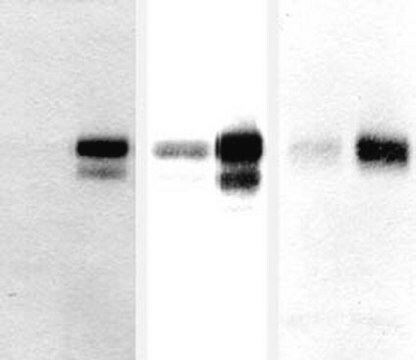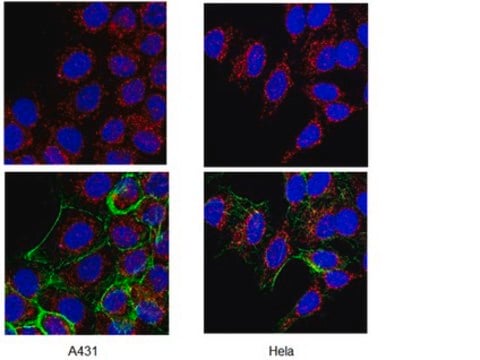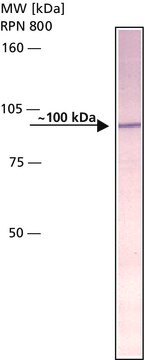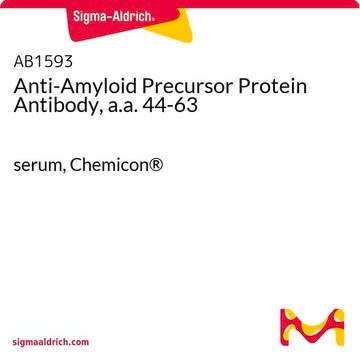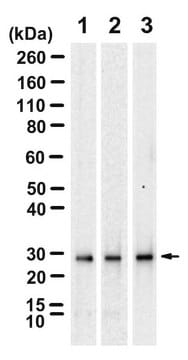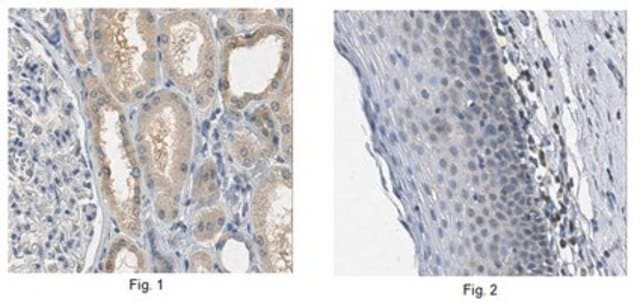AB5352
Anti-Amyloid Precursor Protein Antibody, CT
serum, Chemicon®
Synonym(s):
APP
About This Item
Recommended Products
biological source
rabbit
Quality Level
antibody form
serum
antibody product type
primary antibodies
clone
polyclonal
species reactivity
human, monkey
manufacturer/tradename
Chemicon®
technique(s)
immunocytochemistry: suitable
immunohistochemistry: suitable
immunoprecipitation (IP): suitable
western blot: suitable
NCBI accession no.
UniProt accession no.
shipped in
dry ice
target post-translational modification
unmodified
Gene Information
human ... APP(351)
Related Categories
Specificity
Immunogen
Application
Immunocytochemistry on NTera2 and COS cell lines: 1:100-1:400
Western blot: 1:500-1:2000: The low abundance of full length APP in untreated cells means that poor response is seen with immunoblotting of whole cell lysates. We recommend that membrane fractions be prepared to increase the loading of APP as well as remove potential interferences from soluable proteins. NTera2, Cos7 and Hela cell membrane preparations are positive by western blots.
Immunoprecipitation: 1:100-1:400.
Optimal working dilutions must be determined by end user.
Neuroscience
Neurodegenerative Diseases
Physical form
Storage and Stability
Analysis Note
Brain
Other Notes
Legal Information
Disclaimer
Not finding the right product?
Try our Product Selector Tool.
recommended
Storage Class Code
10 - Combustible liquids
WGK
WGK 2
Flash Point(F)
Not applicable
Flash Point(C)
Not applicable
Certificates of Analysis (COA)
Search for Certificates of Analysis (COA) by entering the products Lot/Batch Number. Lot and Batch Numbers can be found on a product’s label following the words ‘Lot’ or ‘Batch’.
Already Own This Product?
Find documentation for the products that you have recently purchased in the Document Library.
Our team of scientists has experience in all areas of research including Life Science, Material Science, Chemical Synthesis, Chromatography, Analytical and many others.
Contact Technical Service
